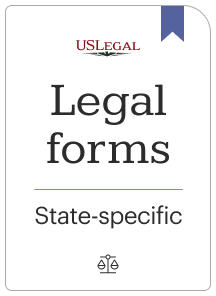

This Agreement and Release gives the date of the employee's termination and the terms and conditions of his or her severance. It releases the employer and all of its officers, trustees and employers of and from all claims, demands, actions, causes of actions and liabilities. New Jersey Agreement and Release regarding Severance of Employment is a legal document that outlines the terms and conditions agreed upon by an employer and an employee when ending their employment relationship. This agreement is vital in New Jersey, as it helps protect the rights and interests of both parties involved. Here is a detailed description of what this agreement entails and some common types associated with it: 1. New Jersey Agreement and Release Purpose: The New Jersey Agreement and Release regarding Severance of Employment serves as a final settlement between an employer and an employee, typically when the employee is being laid off or terminated. It ensures that the employee receives certain benefits and severance pay while also protecting the employer from potential legal actions in the future. 2. Key Clauses in the Agreement: a. Severance Benefits: This clause outlines the monetary or non-monetary benefits the employee will receive upon termination. It may include lump-sum payments, continuation of healthcare coverage, accrued vacation pay, pension or retirement benefits, stock options, or other negotiated compensation. b. Release of Claims: In this clause, the employee agrees to release the employer from any past, present, or future claims, lawsuits, or disputes arising from their employment. This ensures that the employee cannot take legal action against the employer for any reason related to their termination. c. Confidentiality: This clause prohibits the employee from disclosing any confidential information about the employer, clients, or trade secrets, even after the termination of employment. It protects the employer's business interests. d. Non-Disparagement: This clause prevents the employee from making negative or damaging comments about the employer or its representatives, both orally and in written form. It helps maintain the employer's reputation. 3. Types of New Jersey Agreement and Release regarding Severance of Employment: a. Single Release Agreement: This type of agreement is used when only one employee is involved in the termination. It specifies the terms and conditions for that particular employee. b. Group or Mass Release Agreement: When an employer needs to lay off multiple employees simultaneously, a group release agreement is used. It typically follows a similar format for all employees, including common severance benefits. c. Executive Termination Agreement: Executives or high-ranking officials may have more complex agreements due to their unique compensation structures and responsibilities. These agreements often include additional clauses related to non-competition, non-solicitation, or consultation requirements. In summary, the New Jersey Agreement and Release regarding Severance of Employment is a vital legal document that protects both employers and employees when ending their working relationship. It ensures fair severance benefits for employees while shielding employers from potential legal disputes. Different types of agreements cater to individual or mass terminations, as well as executive-level positions.
New Jersey Agreement and Release regarding Severance of Employment is a legal document that outlines the terms and conditions agreed upon by an employer and an employee when ending their employment relationship. This agreement is vital in New Jersey, as it helps protect the rights and interests of both parties involved. Here is a detailed description of what this agreement entails and some common types associated with it: 1. New Jersey Agreement and Release Purpose: The New Jersey Agreement and Release regarding Severance of Employment serves as a final settlement between an employer and an employee, typically when the employee is being laid off or terminated. It ensures that the employee receives certain benefits and severance pay while also protecting the employer from potential legal actions in the future. 2. Key Clauses in the Agreement: a. Severance Benefits: This clause outlines the monetary or non-monetary benefits the employee will receive upon termination. It may include lump-sum payments, continuation of healthcare coverage, accrued vacation pay, pension or retirement benefits, stock options, or other negotiated compensation. b. Release of Claims: In this clause, the employee agrees to release the employer from any past, present, or future claims, lawsuits, or disputes arising from their employment. This ensures that the employee cannot take legal action against the employer for any reason related to their termination. c. Confidentiality: This clause prohibits the employee from disclosing any confidential information about the employer, clients, or trade secrets, even after the termination of employment. It protects the employer's business interests. d. Non-Disparagement: This clause prevents the employee from making negative or damaging comments about the employer or its representatives, both orally and in written form. It helps maintain the employer's reputation. 3. Types of New Jersey Agreement and Release regarding Severance of Employment: a. Single Release Agreement: This type of agreement is used when only one employee is involved in the termination. It specifies the terms and conditions for that particular employee. b. Group or Mass Release Agreement: When an employer needs to lay off multiple employees simultaneously, a group release agreement is used. It typically follows a similar format for all employees, including common severance benefits. c. Executive Termination Agreement: Executives or high-ranking officials may have more complex agreements due to their unique compensation structures and responsibilities. These agreements often include additional clauses related to non-competition, non-solicitation, or consultation requirements. In summary, the New Jersey Agreement and Release regarding Severance of Employment is a vital legal document that protects both employers and employees when ending their working relationship. It ensures fair severance benefits for employees while shielding employers from potential legal disputes. Different types of agreements cater to individual or mass terminations, as well as executive-level positions.